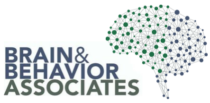You and your therapist will reassess your progress in therapy often – sometimes in each session to ensure that you are meeting your goals for therapy.

Counseling is like having meaningful conversations with a trusted friend who really wants to see you do well and challenge you to grow. Our main approaches are Cognitive-Behavioral Therapy (CBT) and Rational Emotive Behavior Therapy, which are evidence based approaches. We offer Neurofeedback (brain training) with counseling, which can assist in reduction or elimination of medications. We offer supplements specifically tailored to your body’s physiology that can help your brain and body function more normally.
The way in which we think about spirituality shapes our overall understanding and interpretation of life. Our clinicians operate from the biblical Christian worldview and approach counseling from this framework. However, we are respectful of other faith traditions and belief systems. We may expose our way of seeing life like any friend would, but we never seek to impose our beliefs on anyone.
• ADD and AD/HD
• Autism spectrum disorders
• Dyslexia
• Dyscalculia
• Dysgraphia
• Educational development delays in reading and math
• Impulsive/Compulsive behaviors of childhood
• Depression, bipolar disorder, and other mood issues
• Anxiety
• Abuse and developmental trauma
• PTSD
• Mild traumatic brain injury and mild cognitive impairment
• Grief and loss
• Life, career, and brain health coaching
• Anger management
• Job-related and academic stress
•Guilt, shame, and forgiveness
1. Schedule Your Initial Consult
In the consult session, your therapist will obtain your consent for treatment, interview you, and review your intake paperwork, and determine whether testing is needed before you begin therapy. This session is 1.5-2 hours long.
2. Testing & Assessment
If you and your therapist agree that testing would be beneficial, you will be given age and symptom appropriate computerized tests to help identify your strengths and potential areas of work. This session is normally 1-2 hours long.
3. Debrief Results
In this 1 hour session, your therapist will review your test results and present recommendations for therapy.
4. Therapy
Although the number of sessions varies from person to person/couple to couple, most people will begin to see a measurable change in the things that led them to therapy in a few sessions. Most individuals and couples are in therapy for 6-12 sessions – some fewer, some more. Sessions are generally 1 hour long.
5. Reassessment

